PRESERVING A MILITARY LEGACY FOR FUTURE GENERATIONS
The following Reflections represents MSgt John Bradley’s legacy of his military service from 1968 to 1989. If you are a Veteran, consider preserving a record of your own military service, including your memories and photographs, on Togetherweserved.com (TWS), the leading archive of living military history. The following Service Reflections is an easy-to-complete self-interview, located on your TWS Military Service Page, which enables you to remember key people and events from your military service and the impact they made on your life.
Please describe who or what influenced your decision to join the Marine Corps.

I was named after my Great Uncle John Vander Schaff, who was in the Army from 1907-1911, serving in the Philippine Insurrection, Cuban Insurrection and Mexican Border Campaign; he then joined the US Marine Corps serving from 1911-1919. He served in the Peking Legation Guard and later was Marine Barracks Manilla, Mare Island and Marine Guard at Portsmouth Naval Prison. He was transferred Sea Duty in WWI, although he did not serve in combat as he was reassigned to escort military prisoners from France back to the US. He was discharged in 1919. I grew up with his often hilarious stories of his time overseas. I also come from a family where every male had served in the USA or Navy since the American Revolution, and on both sides during the Civil War, it was expected I would put in a hitch during the Vietnam War, as did all of my cousins. The big difference was I stayed in for 20 years.
Whether you were in the service for several years or as a career, please describe the direction or path you took. What was your reason for leaving?
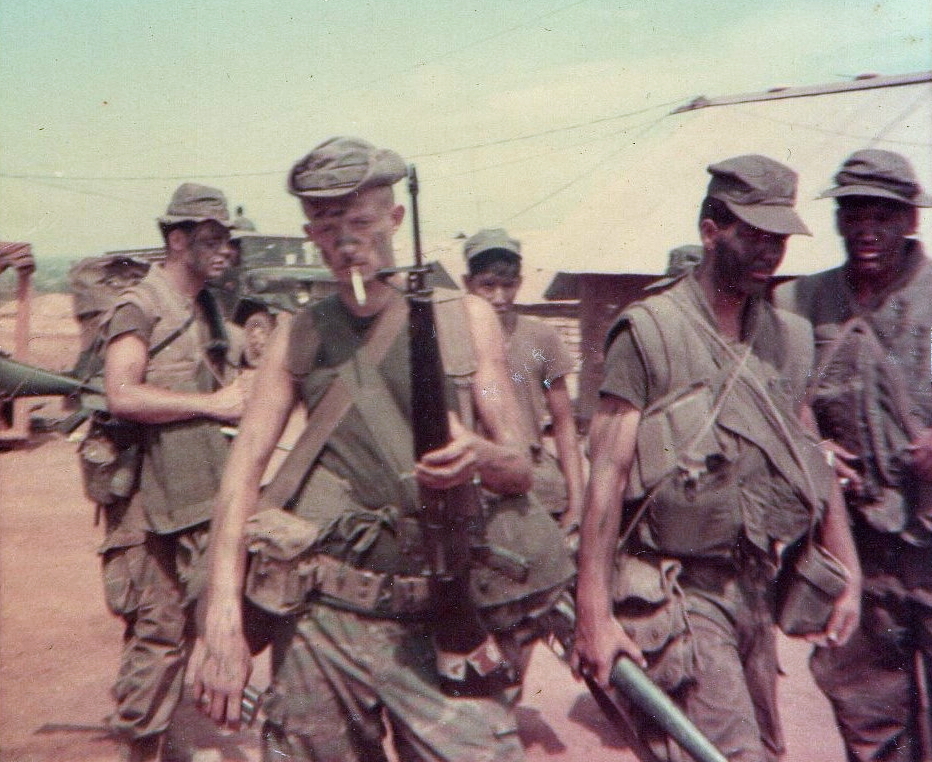
I wanted to travel and see the world. I went to Boot Camp San Diego, then ITR and BITS training at Camp Pendleton. I was transferred to 1st MarDiv South Vietnam in Dec 1968 after completing advanced training. I then went to Camp Hansen, Okinawa, before transferring to Da Nang, Vietnam. I was assigned to “C” Company, 1st Bn, 7th Marine, where I participated in several operations, 1st walking point, tunnel rat as needed, went to Demolitions School, and later became Squad leader. I was wounded several times, the last putting me in the hospital for five months. After being discharged from USNH Bremerton in 1970, I was assigned to MABS 33 and later MABS 13 at MCAS El Toro as a clerk because I could type. I made sergeant in 24 months. Instead of an early discharge, I re-enlisted for Marine Security Guard School; I graduated in 1971 from MSG School Henderson Hall and was assigned to Frankfurt, FRG, later Transferred to AmConGen Leningrad, USSR. Upon transfer back to 2nd MarDiv in 1974. I worked on Congressional Interest cases for the Division in G1.
In 1975, I made SSgt and requested a lateral movement to 2nd ITT, later graduating from German language school and 1st in my class at Interrogation School Ft. Huachuca, AZ. After a Carib Cruise and a NATO Cruise, I was selected for GySgt and re-enlisted for MSGSchool, this time as an NCOIC; after graduation at Quantico, VA, I was assigned to Kabul, Afghanistan, where I was NCOIC during the Coup and Soviet Invasion 1979. Later, I was transferred to AmConGen Rio de Janeiro, Brazil. I departed Rio in 1983 and attended Jungle Warfare School in Panama en route to Okinawa. I had a short stint in Costa Rica, then arrived in Okinawa, Japan, in 1983. I was NCOIC of the Russian ITT and participated in numerous exercises, including an exercise in South Korea. I went to DLI for Russian in 1984, then was NCOIC of the MCAD DLI until 1985 and made MSgt, then returned to MSGBn. After completing school, I was assigned as NCOIC Moscow Det, USSR; in 1986, I transferred back to Quantico, then on to 2nd ITT, 2nd MarDiv, Camp Lejeune, N.C., where I was NCOIC until my retirement in 1989.
If you participated in any military operations, including combat, humanitarian and peacekeeping operations, please describe those which made a lasting impact on you and, if life-changing, in what way?

During Operation Oklahoma Hills in the Summer of 1969, we took a break after humping the jungles and rice fields for several hours, observing no sign of the enemy. I sat down, and one of the Marines in my squad took this picture; seconds later, an NVA Squad came out of the tree line about 300 yards away. We opened fire, wounding one as they ran back into the jungle carrying their wounded comrade. What it reinforced about combat was that Murphy’s Law was alive and well.
Did you encounter any situation during your military service when you believed there was a possibility you might not survive? If so, please describe what happened and what was the outcome.

At 1930 on 27 December 1979, upon hearing heavy gunfire, numerous explosions, and the rotors of Hind Helicopters, NCOIC MarDet Kabul GySgt J. Bradley and Comm Tech S. Derrick ran from the NCOIC’s house in Wazir Akbar Khan, rapidly entering his car and raced for the Embassy. We entered the main road between two BTR 60s (Soviet Personnel Carriers). I raced ahead, passing one BTR, and turned onto a side street that led to the back gate of the embassy compound. At this junction, we received a small arms fire, which hit the trunk of my car. Coming to the back gate, we pulled off the road, bailed out of the car, and ran to the back entrance gate to which I had a key. More rounds from the direction of the intersection flew by us while we were crossing the street, impacting the stone column next to the gate and peppering us with small pebbles and dust. Opening the gate, Comm Teck Derrick ran to the back entrance of the Embassy manned by a Marine guard. I observed the Station Chief running towards the gate from a side street. I held it open until his arrival secured the gate, and we both ran to the back entrance, entering at 1941 and then we both commenced our duties.
Of all your duty stations or assignments, which one do you have fondest memories of and why? Which was your least favorite?
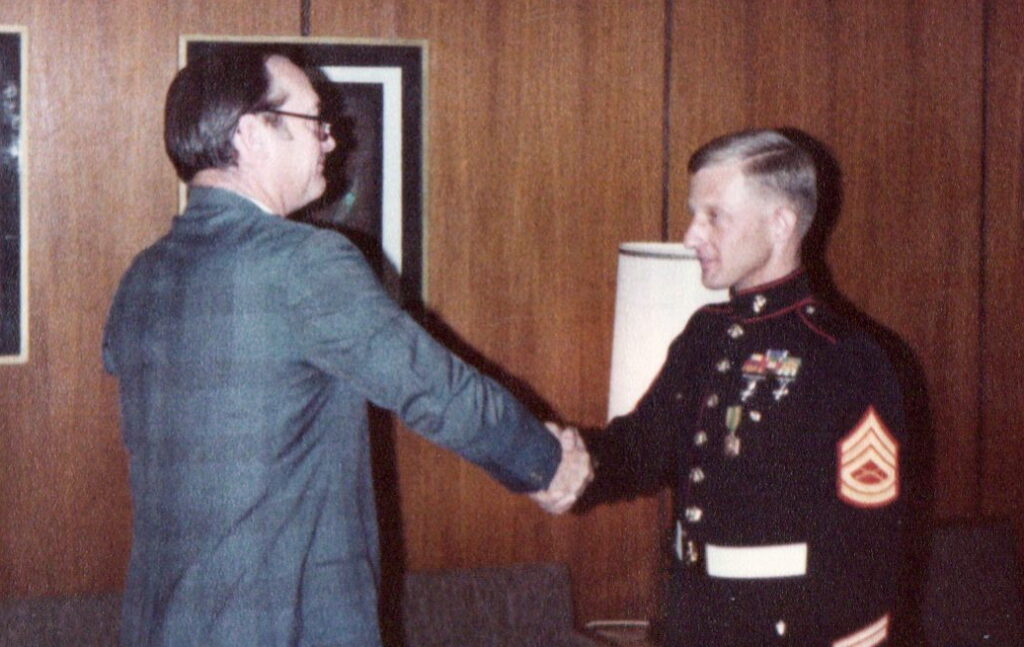
It is a toss-up for the best tour of duty. MSGDet, Kabul 1979-81 as we went through 2 Coup de Etat’s, The Soviet Invasion. Rioting and evacuating the Embassy from 150 plus to 20 when I departed. If you’re a Marine, this is where you want to be. My second choice would be MSGDet, Rio De Janeiro, and Colonel Cooper said I could have any posting open at the time when I left Kabul. Thirty years old, single, and 18 months’ pay in the bank. This was a Marine’s dream posting.
From your entire military service, describe any memories you still reflect back on to this day.

I remember vividly Colonel Cooper encouraging me to pursue my four-year education, especially letting the Marine Corps and later the GI Bill pay for it. I took this advice to heart and completed my AA and BS while on active duty and my Ph.D. after I retired.
What professional achievements are you most proud of from your military career?
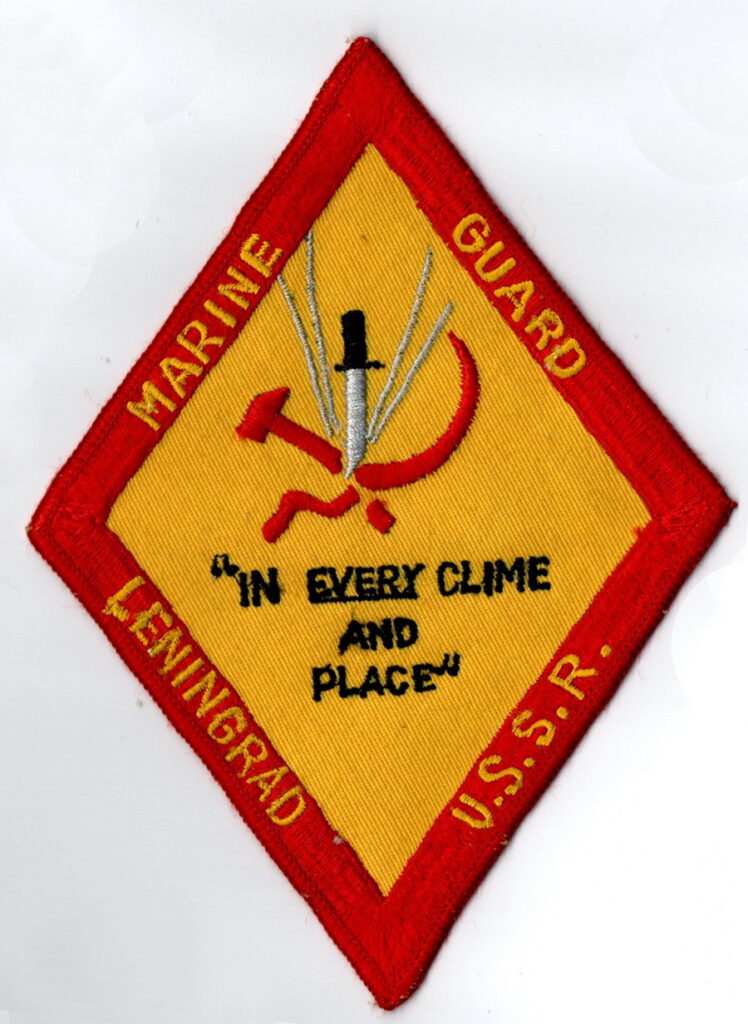
Graduating 1st in class Interrogation School, Ft. Huachuca, AZ. I earned my Associate of Arts (Okinawa, Japan) and my Bachelor of Science (Camp Lejeune, N.C.) while on active duty. As well as being one of the first Marines in Leningrad, the USSR also made Master Sergent in 16 years.
Of all the medals, awards, formal presentations and qualification badges you received, or other memorabilia, which one is the most meaningful to you and why?
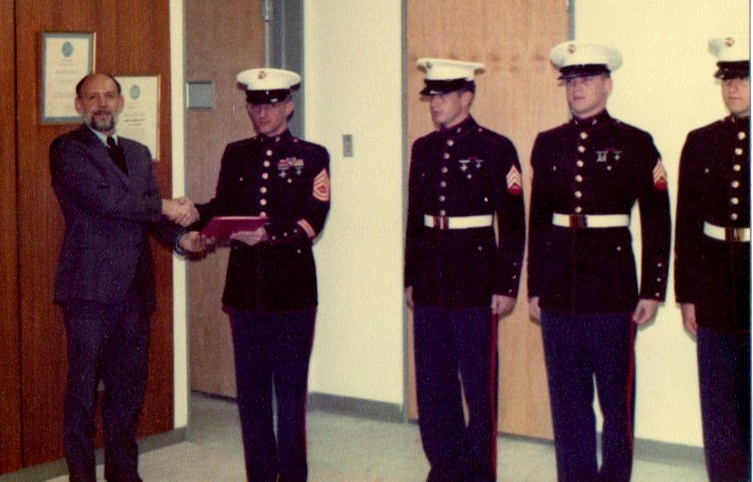
I am still proud of my Marine Detachment in Kabul, Afghanistan, during the Soviet Invasion in December 1979. The can-do attitude and Esprit de Corps were evident during the fighting taking that afternoon and night around the Embassy. Our Embassy was located across the street from the Radio Afghanistan Complex, defended by a tank platoon and company of Afghan Soldiers. The fighting at times was heavy, and we did not know what was going to happen to the Embassy due to our strategic location. The conduct of the Marines, their response, and their actions led to the detachment being awarded a Meritorious Unit Citation from the Marine Corps and the Superior Honor Award by the Department of State.
Which individual(s) from your time in the military stand out as having the most positive impact on you and why?
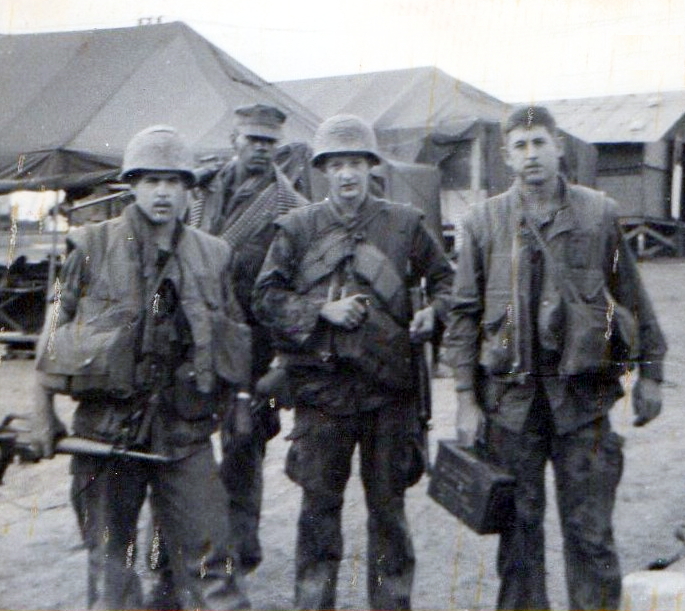
Colonel James Cooper, whom I served under as a Sgt (Maj Cooper was CO, Co A MSGBn), GySgt (NCOIC Kabul, Afghanistan when Col Cooper was CO, MSG Bn). and as 8th ITT TmCmdr, 3rd MarDiv, FMF when he was G-3) He encouraged me to earn my AA in Okinawa, Jp, my BS after returning to the States. We kept in touch until he passed away. General Cooper died of cancer in 1986(?).
List the names of old friends you served with, at which locations, and recount what you remember most about them. Indicate those you are already in touch with and those you would like to make contact with.
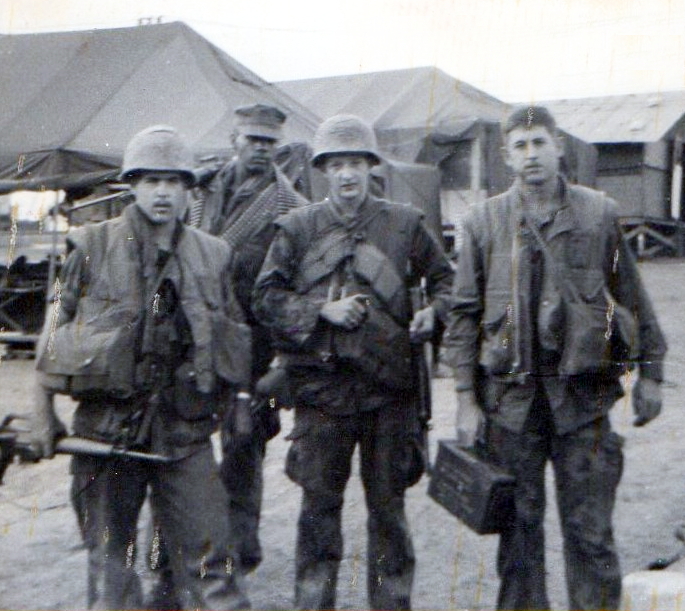
GySgt Al Healy, whom I served with at the AmConGen Leningrad, USSR, several tours together with at Camp Lejeune, N.C., and DLI, Monterey, CA. We were always roommates, sharing an apartment at Camp Lejeune and Monterey. Also Capt Paul Anctil was OIC 2nd ITT, 2nd MarDiv, FMF, Camp Lejeune, N.C. while I was NCOIC. I would genuinely enjoy visiting with Cpl Marshall, LCpl’s Flowers Button, and Morikin, whom I served with in Vietnam. I have searched for them with no success.
Can you recount a particular incident from your service, which may or may not have been funny at the time, but still makes you laugh?
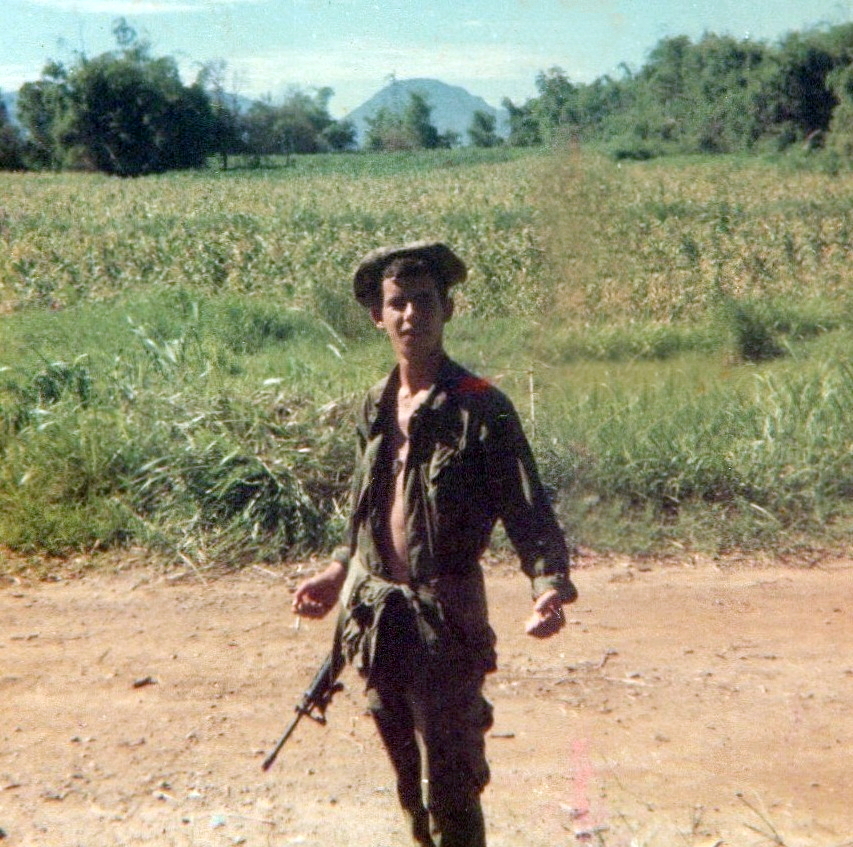
I was cutting some Banana fronds when a large black tarantula jumped off a frond I cut and landed on my chest. I jumped back so fast I knocked LCpl Flowers on his ass. I laugh now at the time startled the heck out of, and the entire squad laughed as Flowers, and I got up.
What profession did you follow after your military service, and what are you doing now? If you are currently serving, what is your present occupational specialty?

After retiring from the Corps, I became a surveyor and wetland scientist. I worked for San Jun Surveying and founded Island Environmental Sciences, Friday Harbor, WA. In 2005, my wife and I moved to Costa Rica, and now I raise oranges (250 trees), mandarin oranges (50 trees), Avacodos (16 trees), and coffee (2500 plants).
What military associations are you a member of, if any? What specific benefits do you derive from your memberships?
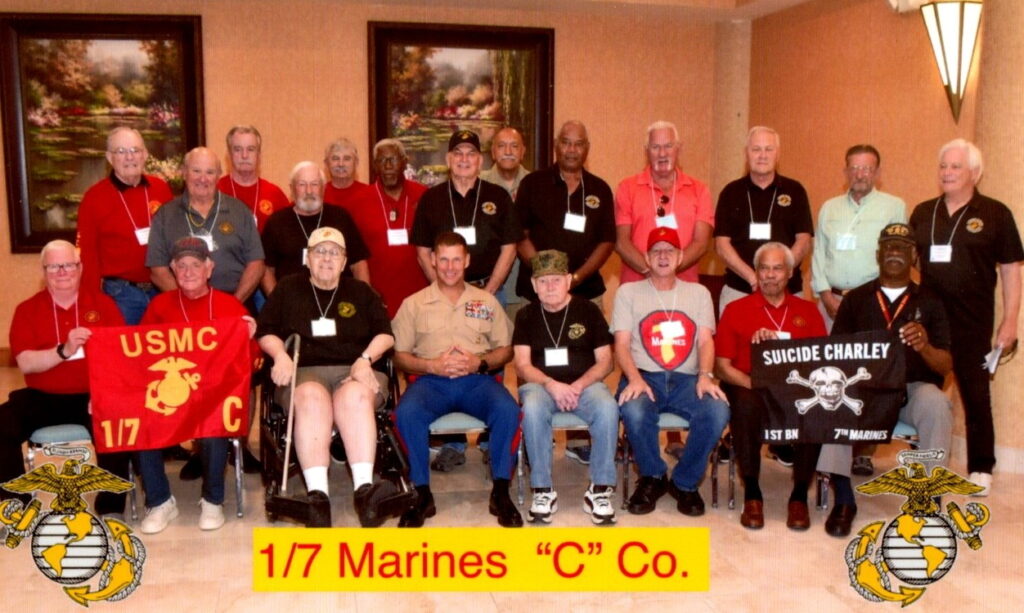
Marine Embassy Guard Association and 1st Bn, 7th Marine Regiment, Vietnam veterans.
In what ways has serving in the military influenced the way you have approached your life and your career? What do you miss most about your time in the service?
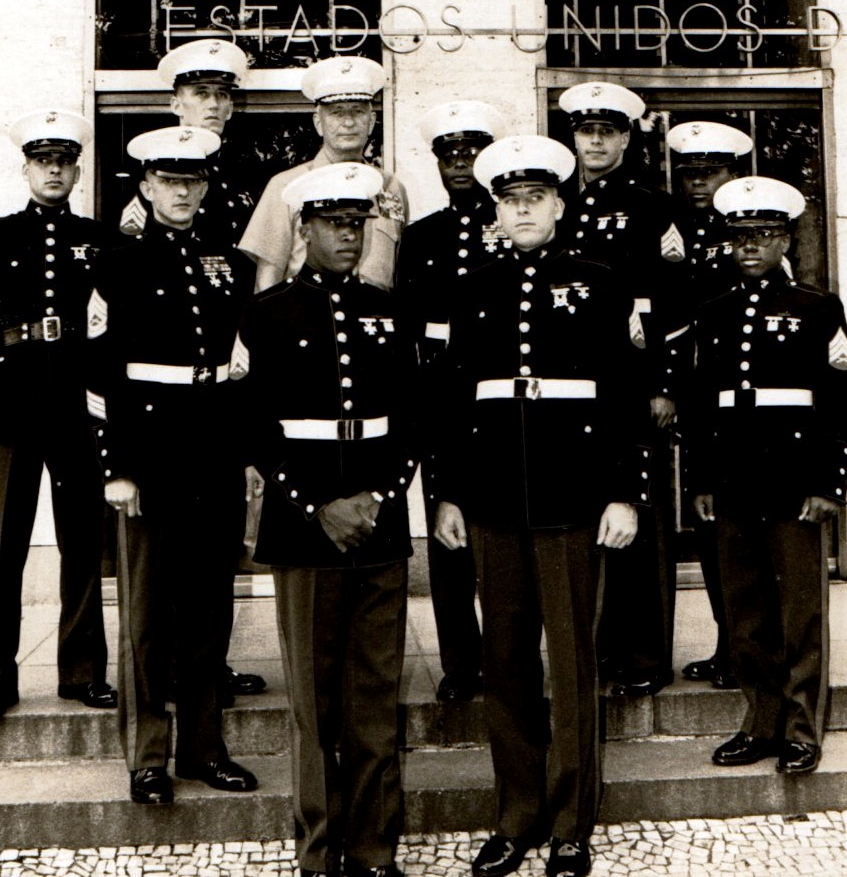
It reinforced my determination to succeed in all my endeavors and afforded me the opportunity to work and visit 47 different countries on five continents. I still miss the comradeship of the Marines in the units I served with.
Based on your own experiences, what advice would you give to those who have recently joined the Marine Corps?
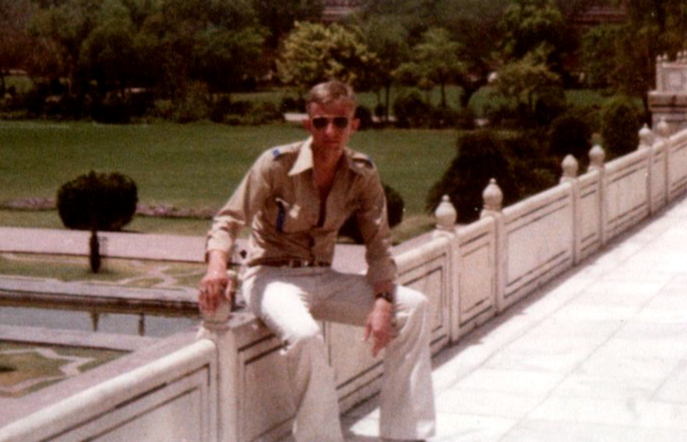
Take advantage of any and all military and civilian schools offered—volunteer for Cruises and Floats. Definitely put a tour in with the Marine Embassy Guard.
In what ways has togetherweserved.com helped you remember your military service and the friends you served with.
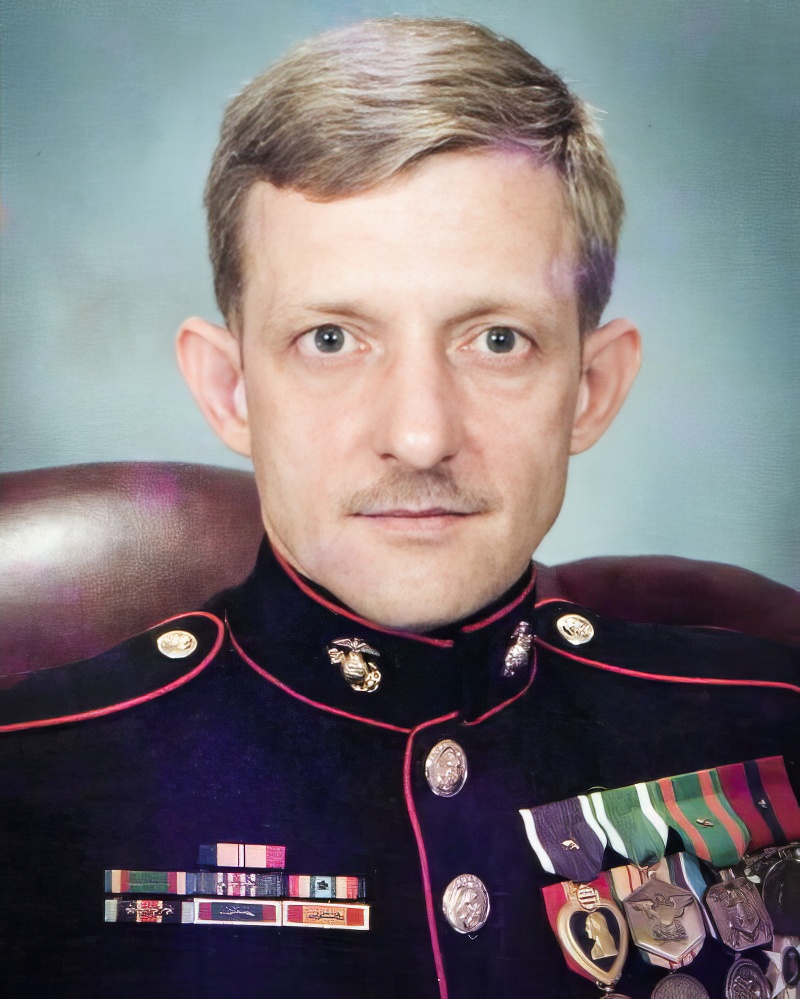
I enjoy looking up folks from various units I served in and have found a few of the Marines from those units to visit with. I also enjoy the history articles that are presented.
PRESERVE YOUR OWN SERVICE MEMORIES!
Boot Camp, Units, Combat Operations
Join Togetherweserved.com to Create a Legacy of Your Service
U.S. Marine Corps, U.S. Navy, U.S. Air Force, U.S. Army, U.S. Coast Guard

John was an old Marine buddy of mine, we were both 0251’s and went to the IPW course at Ft Huachuca together plus DLI at the same time. We also served in the same units on Okinawa and Camp Lejeune. He moved on to MSG and I lost track of him. I moved on to the USAF as a HUMINT operator. Good deal. Finished my time and set me up for 25 years service with the DEA . Wish I knew he was in Costa Rica. Made a trip there as well as other Central and Latin American countries during my second career. Hope to hear from him if he reads this.
John old friend just readimg your.military bio. You are the man, think about you.now and again.. Ski trips ha. Love you my friend. ( MY OLDER BRO I NEVER HAD)